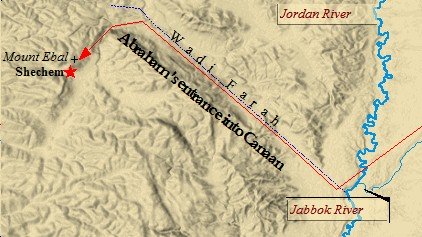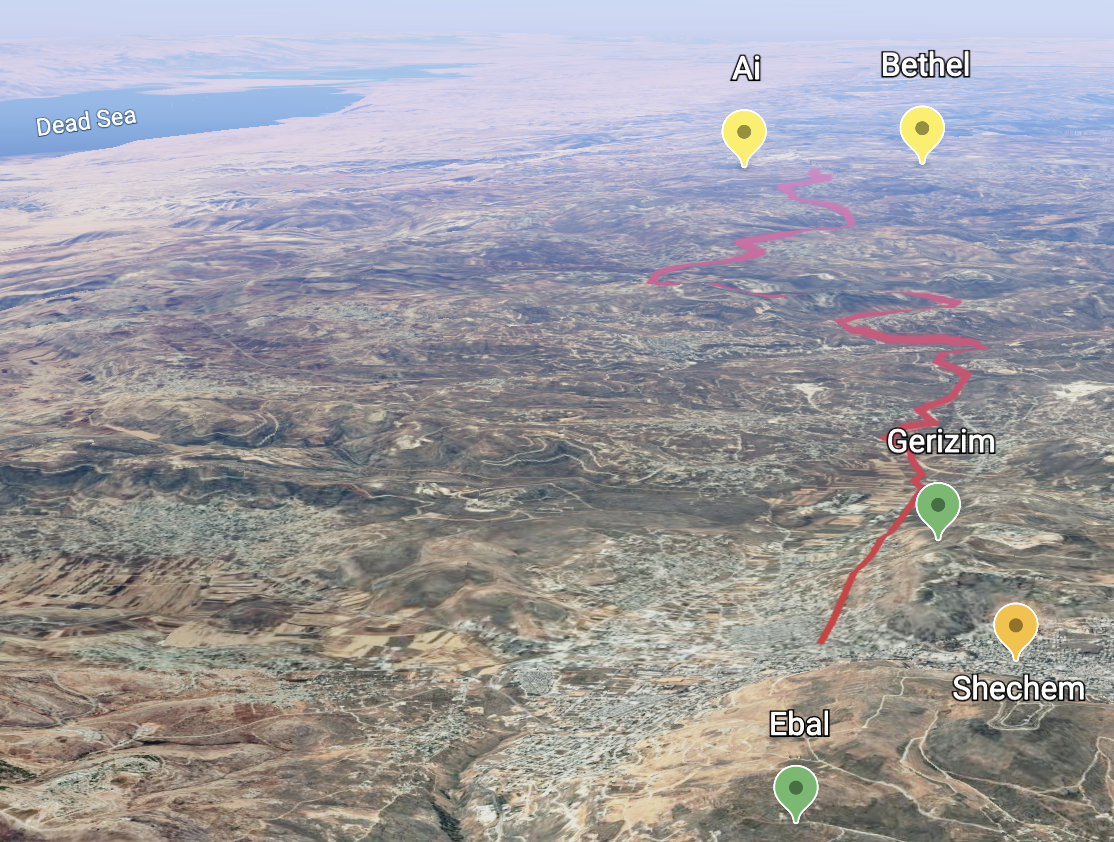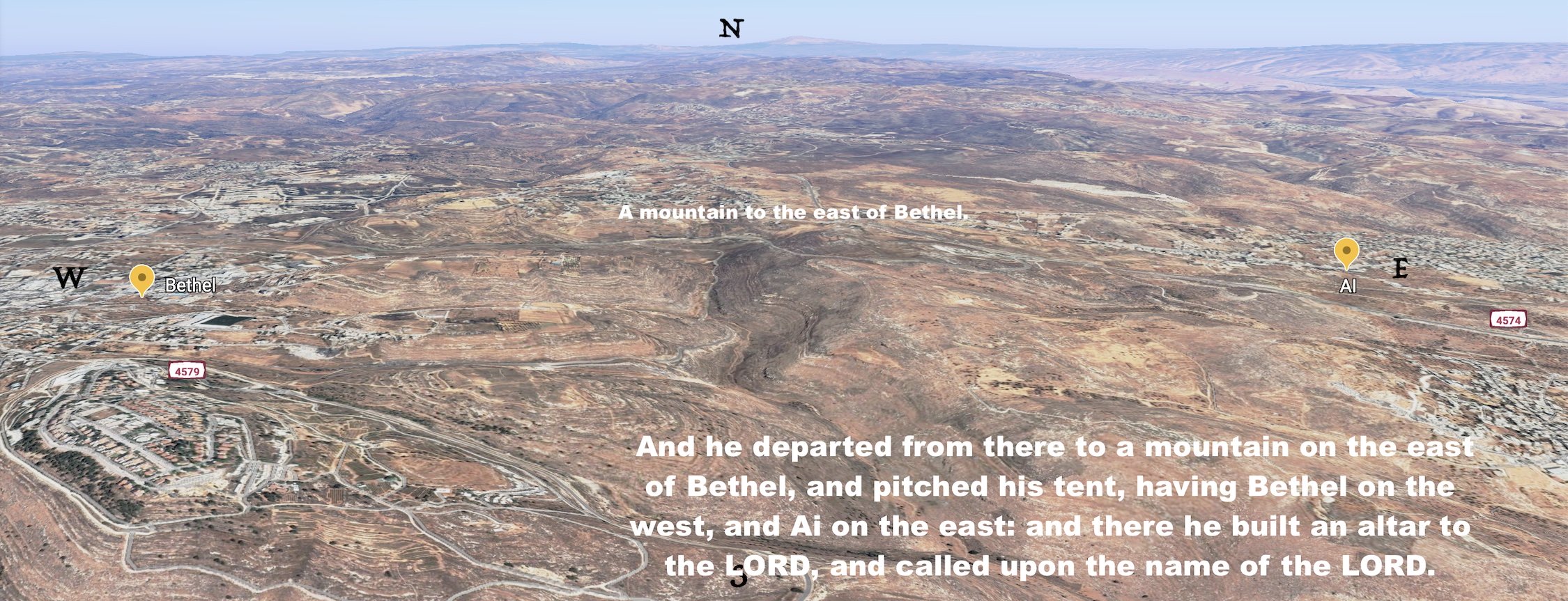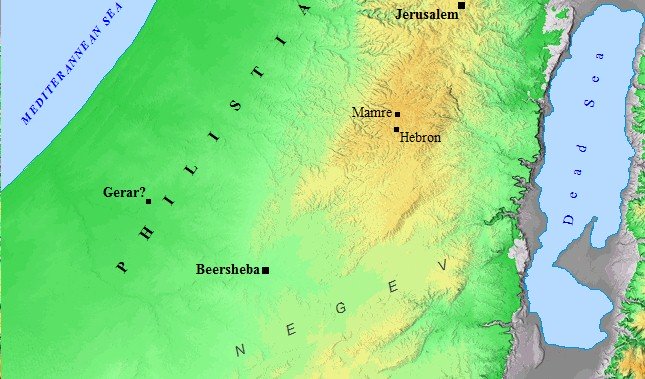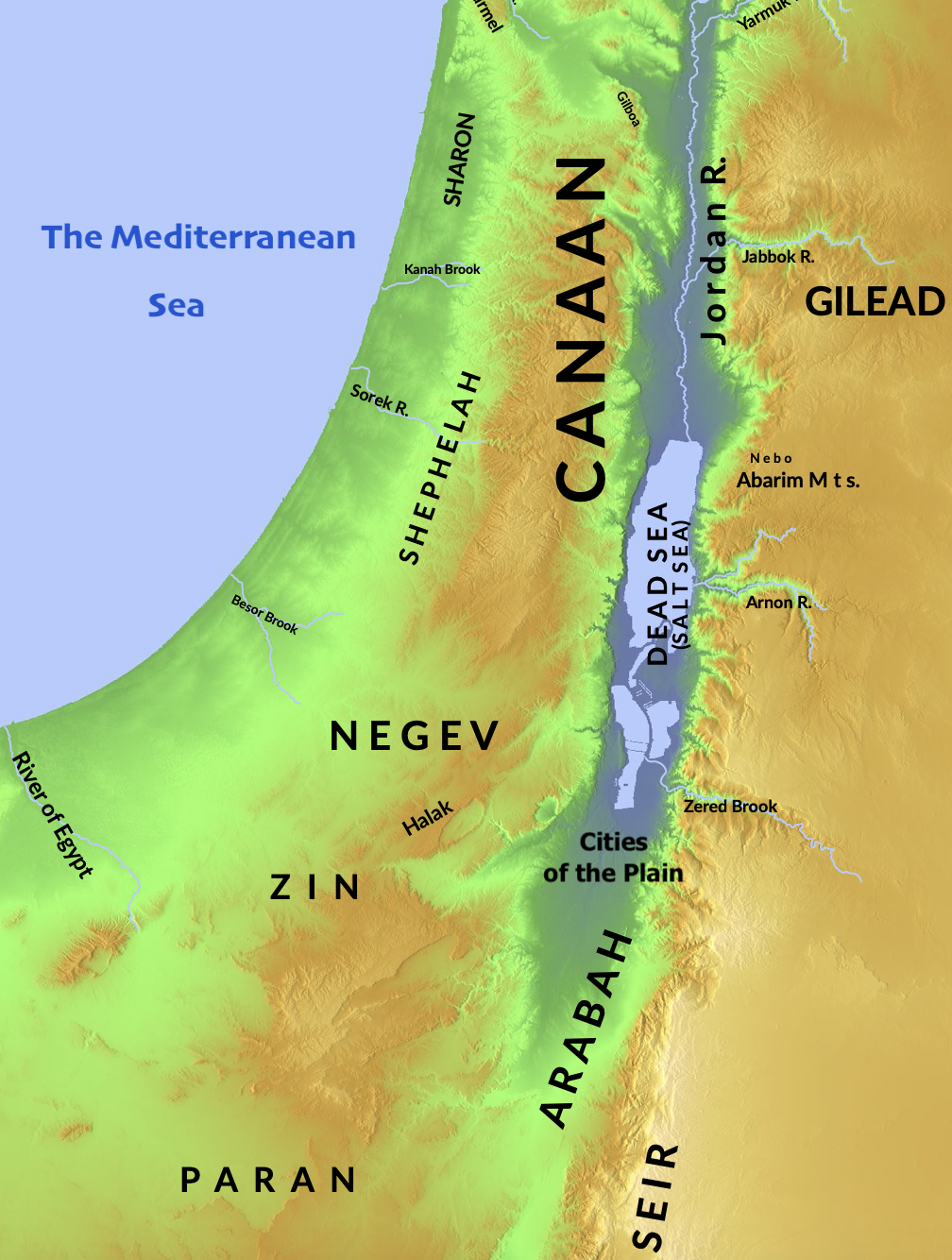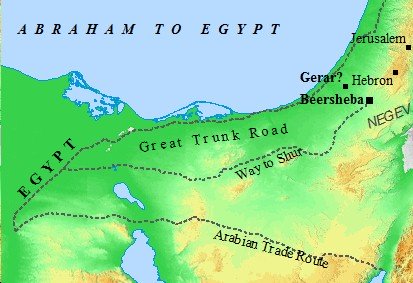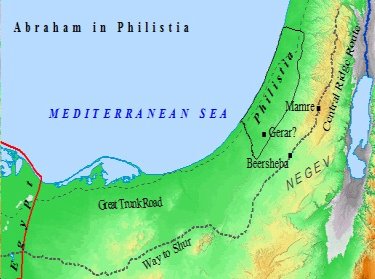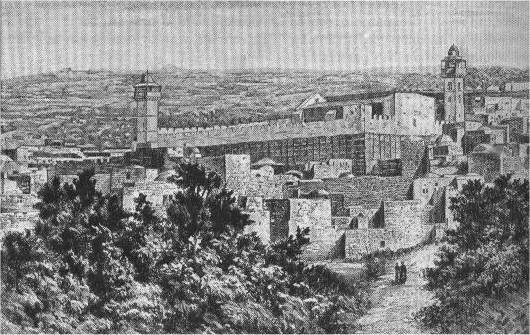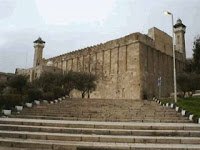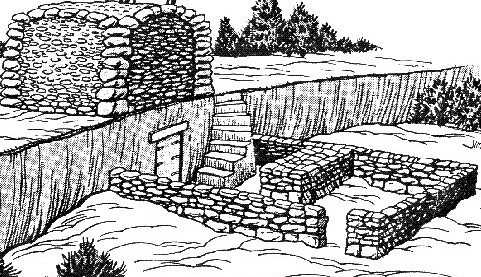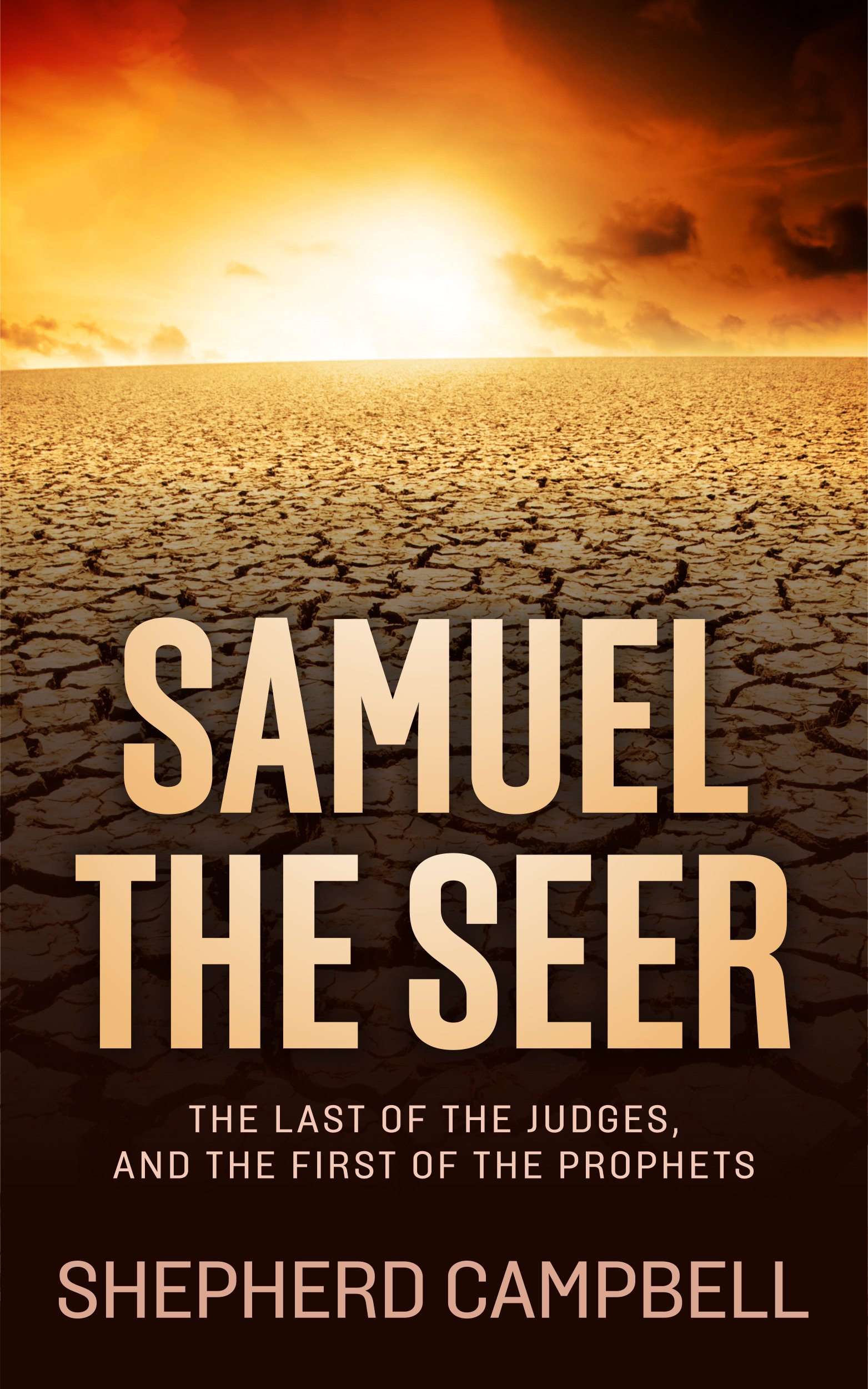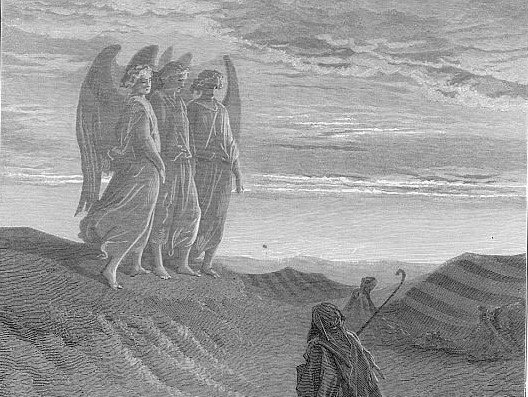- Biblical Maps
- Home Page
- History of Israel Blog
- Ancient Mesopotamia
- Map of Palestine
- Abraham
- Ancient Israel
- 12 Tribes of Israel
- Jerusalem
- The Book of Isaiah
- Palestine
- The Habiru
- Contact Us
- Bible Study Forums
- Media Page
- Visitors Sitemap
- Privacy Policy
- The History of the Old Testament
- In the Days of Noah
- The City of Jericho
VISIT OUR FACEBOOK PAGE!
Abraham and Sarah
Abraham and Sarah Enter Canaan
As Abraham and Sarah entered Canaan they stopped at one of the first cities they would've encountered, Sichem or Shechem. Genesis 12 records their entrance into the land of Canaan.
Gen. 12:6
"Abram traveled through the land as far as the site of the great tree of Moreh at Shechem. At that time, the Canaanites were in the land."
In the time period of Genesis 12 the "great tree of Moreh" would have been a well known landmark. Linguists suggest the actual word suggests an oak, or terebinth grove, as opposed to the word "plain", as translated in the King James.
It is also interesting to note that, geographically speaking, Shechem is near the center of the Holy Land. Abraham and Sarah descended into the Jordan River Valley from the east, most likely from the Jabbok River. The group would've entered Canaan via the Wadi Ferah. From the Wadi, Abraham and Sarah would have traveled northward up the western banks of the Jordan River Valley to the mountains of western Palestine and into Shechem.
PAGE CONTENTS
|
Click on a link to view that section of this page. |
ABRAHAM TRAVELED UP THE WADI FARAH FROM THE JABBOK RIVER TO ENTER THE LAND OF CANAAN. |
Shechem, or the great landmark alluded to near Shechem, would have been one of the first "cities" encountered by a party entering Canaan from that direction. It is in Shechem that God appeared to Abram for the first time since his arrival in Canaan.
Gen. 12:7 "And the Lord appeared unto Abram."
In Shechem, God promised that He would give this land to Abram, though at the time Abram owned none of it - and was a foreigner dwelling in a foreign land. Abram responded to God by building an altar to God.
Abraham and Sarah then continued southward, traveling some 35 miles before stopping at Bethel. Scripture says they actually stopped at a mountain east of Bethel.
Genesis 12:8
"And he removed from thence unto a mountain on the east of Bethel, and pitched his tent, having Bethel on the west, and Ai on the east: and there he builded an altar unto the Lord, and called upon the name of the Lord."
Shortly after, Abraham and Sarah continued their journey, "going on still toward the south". Abram, unbeknownst to him, was leading his clan into the Negeb, the southern portion of Judah bordering on the Southern Wilderness.
Scripture paints the picture of Abram living as a nomad at this point in time. The Bible depicts a man constantly on the move. The party followed sources of water and pasture land, establishing altars as signs of appreciation for sustenance provided by YHWH.
These altars were, no doubt, signals of gratitude from day to day living off a foreign land, surrounded on all sides by foreign people, some hostile, some not. Abram, especially early on, likely sought to avoid people as much as possible. Their traveling party was likely too large to hide, however, and the native shepherds, travelers and others surely would have taken notice.
Abraham and Sarah established a pattern of travel that the other Patriarchs would copy over the course of time. Genesis 12-50 basically covers two areas within Canaan. The first area being the central mountains of western Palestine; those areas including Shechem, Ai, and Bethel.
The second area is the Negeb, including Beer-sheba, which has produced ruins dating to the Middle Bronze Age - the time of Abraham. Abram's early migrations in Canaan, as well as those of the later Patriarchs, can be seen as seasonal. In the hot summer months, to seek relief, the clan moved into the mountainous regions. In the winter, to seek food, Abraham and Sarah would move the clan to adequate food and water supplies found in the Negeb and the bordering regions.
What do you think about Abraham and Sarah? Please give us your insights into the lives of these remarkable people by clicking on the link above. Share your thoughts, comments, and questions!
ABRAHAM LIVED IN MAMRE, NEAR HEBRON. HIS TOMB CAN BE VISITED TODAY IN PALESTINIAN CONTROLLED HEBRON.
Abraham and Sarah in Egypt (Gen. 12:10-20)
Genesis 12:10 relates that a famine had occurred in Canaan. This famine was "grievous in the land." Consequently, Abraham and Sarah journeyed to Egypt seeking relief. Abram was unable to sustain his flocks in Canaan, thus, his trust in the Lord's promise was tested.
Scripture does not make mention of Abraham and Sarah asking God for guidance, but they take the initiative and journey to Egypt. Upon anticipation of danger, Abraham and Sarah devise a scheme to hide their marriage should a sitation arise which would require them to do so. Obviously Abram had reason to believe such a situation would arise, or else why devise the plan on the front end?
Abram fears the Egyptians may kill him to steal his wife. Sarah was a very beautiful woman (12:14), which would have gained the attention of the sensual Egyptians. Abram reasons it is best to say she is his sister, and he will be treated well on account of her rather than killed so that some other man may take her as his own.
Surely he felt some justification in this. Abraham and Sarah were half siblings. Indeed, the men of Egypt did find Sarai attractive and lusted after her. The Egyptians, descendants of Ham through Mizraim, were polytheistic in their beliefs, worshipping a vast multitude of gods, cruel and oftentimes immoral in their pursuit of pleasure and power.
They instantly recognized Sarai's physical beauty and sought to possess her. Seemingly, in no time, Pharaoh himself had taken notice of Sarai.
"The princes also of Pharaoh saw her, and commended her before Pharaoh: and the woman was taken into Pharaoh's house. And he entreated Abram well for her sake: and he had sheep, and oxen, and he asses, and menservants, and maidservants, and she asses, and camels." Gen. 12:15-16
The Egyptians saw something in Sarai which led them to present her to their Pharaoh, instead of taking her for themselves. It is also notable that she is not defiled immediately by Pharaoh. Instead, Pharaoh begins to contemplate marriage with Sarai.
The plan of Abraham and Sarah had appeared to work out just fine, with Abram's life being spared. Pharaoh even gave extravagant gifts to Abraham on account of Sarah. Yet, now Pharaoh desired to marry Sarai and Abram faced the threat of losing his wife.
God intervened, however, and struck Pharaoh and his household "with great plagues".
Scripture does not relate how Pharaoh discovered Abraham and Sarah were married, only that once he found out he entreated Abraham and Sarah to leave immediately. One gets the sense from reading Gen. 12:20 that Abraham and Sarah were given a royal escort out of the country by Pharaoh's men.
It is interesting to note that the first encounter between Egypt and God's people, in this instance Abraham and Sarah, involved plagues, a Pharaoh sending a party on their way out of the country with royal orders, and that party leaving with everything they possessed intact, along with additional gifts given them by the Egyptians themselves. Centuries later a similar scene is depicted with Moses leading the Israelites out of Egyptian bondage.
Abram's Vision ( Genesis 15 )
God once again reaffirms His promise to Abram in the opening verses of chapter 15. For the first time in the Bible, the word "word" appears, referring not to words of men, but the "word of the Lord".
The word of the Lord to Abram came in the form of a remarkable
promise concerning land and offspring. There are no two greater assets to the ancient Jews than land and children. This was a very big deal. A conversation takes place between Abraham and God in which Abraham expresses thankfulness, but at the same time expressing frustration over not having a son to take over the household. As it stood, Abraham's servant Eliezer of Damascus was to become his heir.
God promises Abram that a heir "shall come forth out of thine own bowels". Abram believes God and it is credited to him as righteousness. God then confirms His plans for Abram in a ritualistic ceremony. Abram was instructed to take one cow, sheep, goat, pigeon, and dove, and prepare an altar for their sacrifice.
These animals represented the five acceptable animals later to be sacrificed according to Jewish law. The sacrifices were placed in two rows on the altar, with a bird in each row, and one-half of the other animals in each row.
Historians have shown that this conformed to ceremonies performed in antiquity where the two parties would pass between the rows as a symbol of their oath to abide by the terms of the contract. As the day progressed, Abram had to fight off the birds that sought to devour the meat placed on the altar. As the sun sank over the horizon, Abram is said to have fallen into a "deep sleep".
God reveals to Abram that his descendants will become strangers in a land not theirs, and that they will be taken captive. They were enslaved by this land and treated so for 400 years. After this 400 year enslavement, God will rescue them and redeem them to the Promised Land. As nighttime set in, a mysterious "smoking furnace, and a burning lamp" passed between the two rows.
This was symbolic of God passing through, not Abram, as the covenant was God's and God's alone. It was not dependent on anything Abram could, or could not, do. God was sealing the covenant with His guarantee to Abram because Abram had remained faithful and obedient. Abram would father a child, and his offspring would end up as numerous as the stars. Abram would become a father of many nations.
Abraham in Philistia
Genesis 20 opens up with Abraham and Sarah taking a trip southward into the Negev. They are said to have stopped in Gerar. Scripture chooses not to give a reason for Abraham and Sarah taking this trip. Gerar was the Philistine capital city at the time and controlled a prosperous caravan route into Egypt.
The city was near the Egyptian border of the Sinai, and archaeology has shown that it was a wealthy and popular city. The Philistines, from which the word Palestine is derived, were an interesting people who continually appear throughout the Old Testament. By the time of King David they were the arch nemesis of Israel. At this point in time, however, there was no Israel, and Abraham appeared at peace with these people.
They were descendant's of Ham's son, Mizraim, and seem to have
originated from Crete. They settled along the seacoast, perhaps making
their most infamous appearance in Scripture in the form of Goliath. Though this would be nearly 1,000 years after Abraham.
Philistine ancestry is intermixed with the descendants of Japheth as well, thus, these people were not of the same religious inclination as Abraham and his family. Nonetheless, he enters their capital city with little knowledge of their customs or their religious beliefs.
By this time Abraham was a wealthy chieftain and well respected by those that knew him. Perhaps he had business dealings which drew him to the Philistine capital. Whatever the cause, it did not take him long to realize these were a wicked people. Abraham and Sarah would soon find themselves in an all too familiar position.
Instead of trusting God, as Abraham and Sarah had done in the past, he reverted back to his old story they devised in Egypt, claiming that Sarah was his sister. Abimelech, which is the Philistine word for King, similar to Pharaoh or Caesar, takes her as his wife. Perhaps Abimelech saw an opportunity to gain an important and influential ally in Abraham, and seized this opportunity by taking Sarah into his harem. Sarah, at this time, was probably around 90 years old.
Why Abraham does not trust God with his wife is not said. It would appear this was an agreed upon story by Abraham and Sarah when in situations around foreign people and rulers. As Abraham and Sarah had done in Egypt with Pharaoh, they again fooled Abimelech into thinking Sarah was Abraham's sister. Before Abimelech had a chance to sleep with her, however, God came to him in a dream and said:
"Behold, thou art but a dead man." (20:3)
Abimelech pleas ignorance to God, who in turn acknowledges Abimelech's innocence in the situation. If Abimelech was unaware of Abraham's God initially, he was not now. God had struck Abimelech with a fatal disease or sickness of some kind. We also learn that the wombs of the women in Abimelech's household, both his wives and those in his harem, had been closed up by the Lord.
God uses a significant term to describe Abraham in verse 7.
Genesis 20:7
"Now, therefore restore the man his wife; for he is a prophet, and he shall pray for thee, and thou shall live; and if thou restore her not, know thou that thou shall surely die, thou, and all that are thine."
Abraham is called, by God, a prophet. Notice, God does not say that he will predict future events, but that he will pray for Abimelech. The Lord tells Abimelech whatever Abraham prays for, he gets. So if the king will let his wife go, Abraham will pray for him, and in turn he will live.
The word 'Prophet' is used here for the first time in Scripture, yet not in the context of predicting future events, but in the context of speaking the words of God as inspired by God. Prophecy, when taken in context with this passage, is not primarily concerned with prediction, but with speaking the word as inspired by God.
The Prophets of Israel were the messengers of God. They were given words and messages to deliver to the people from YHWH. Some of these messages included future events as foretold by the Lord. Thus the prophets were credited with predicting future events, when in reality they simply transmitted the message as given them by YHWH. Abraham was the first prophet mentioned in Scripture since the Flood.
Abimelech gives Sarah back to Abraham, and Abraham in turn prays for his health. Abimelech and all his household are healed by God. In a sign of respect to God, Abimelech pays tribute to Abraham with the following; sheep, oxen, menservants, maidservants, 1000 pieces of silver, and permission to dwell anywhere in the land.
Abraham's Peace Treaty
Abraham had already become a very powerful chieftain. He was head of his clan and exerted a mighty influence in the region he dwelt. His herds no doubt took up an incredible amount of grazing land. Abraham and Sarah seem to have garnered a tremendous amount of respect from the local population. He had a well trained, and battle tested, group of warriors numbering over 300. He had alliances with powerful leaders throughout the land of Canaan and Philistia. Abraham had made a name for himself and his family.
Abimelech, seemingly the same Philistine king from earlier, was fully aware of Abraham's influence and talents. Abimelech arranged a meeting with Abraham, at which he brought the "chief captain of his host", a man named Phiehol.
Abimelech seeks to establish a peace treaty with Abraham. He reminds Abraham of the safety he has had while living in Philistine land. Abraham readily agrees to this, yet, takes the opportunity to correct a recent wrong that had been done to him. Abraham had dug a well in Beer-sheba, a city which rested outside the limits of Abimelech's kingdom in the Negev of Canaan.
However, some of Abimelech's servants had raided the well and taken it from Abraham's servants. Abraham took this opportunity to bring the matter before the King. Abimelech reacted in horror upon hearing of this matter for the first time.
"And Abimelech said, 'I do not know who has done this thing; you did not tell me, nor did I hear of it until today.' "
The two made peace, and termed the well Beer-sheba. Beer-sheba translates as "well of the oath", or, "well of the seven". "Well of the seven" refers to seven lambs Abraham gave Abimelech as a witness of their covenant. After the King and his captain went on their way, Abraham planted a grove of trees near the well. Later in his life he would come back to live in Beersheba. This well is a tourist site today!
Abraham called on the name of the Lord, as was his custom, and surely felt thankful for the piece of land that had been given him. This could be considered the first time Abraham acquired a piece of land which was acknowledged as his. This was the first piece of Israel in Canaan! Afterwords, Abraham returned to his place of residence within the land of the Philistines, where he stayed until Isaac was a grown man.
The Death of Sarah
The next event Scripture captures in the remarkable journey of Abraham and Sarah is the death of Sarah. Genesis 23 opens up with Sarah dying at 127 years old.
This would make Abraham 137. She is said to have died in "Kirjath-arba: the same is Hebron in the land of Canaan".
It is interesting the wording reads Abraham "came to mourn
for Sarah". This seems to suggest that perhaps Abraham was not present
at the time of Sarah's death. Her death happens in Scripture very
suddenly, and perhaps that is how her death was in actuality. Perhaps Abraham was on business traveling throughout the land as he frequently did. The unexpected death of Sarah would've had Abraham scrambling to get back home, where he "came to mourn for Sarah". This, of course, is presumptuous as Scripture is silent on the exact details.
AN 1840 PHOTOGRAPH OF THE CAVE AT MACHPELAH, OR THE TOMB OF THE PATRIARCHS IN HEBRON. ABRAHAM PURCHASED THIS LAND FROM LOCAL HITTITES.
Sarah is the only woman in the Bible whose age is given at the time of her death. Every great man has a great woman. Abraham and Sarah are prime examples of a Godly, faithful marriage. Though they had their share of down falls, misdeeds, lies and deception, Abraham and Sarah established the foundation for God's nation out of faith in YHWH.
Her death was, indeed, a memorable and significant death. Not only was she a woman of righteousness and Godliness, but she was also the first individual in this line to die in the land of Canaan. Instead of transporting her body back to Mesopotamia , Abraham responded in faith to God's promise that Canaan was to be their home.
At the time of Sarah's death, her and Abraham had left Beer-sheba and were residing in Hebron. Abraham needed a place to bury Sarah's body, yet he owned no land. Abraham had built altars throughout the land of Canaan, and had dwelt in different places over the years, presumably paying rent in some form, yet never had he purchased land as his own.
However, Abraham wanted a burial for his wife on land that belonged to them. This was to be their land and their home - and they would be buried for eternity here. Because Abraham was a foreigner, in order to purchase land he had to have not only the money but the agreement of the community as well.
Thus, verse 7 tells how Abraham stood up and bowed himself to the "people of the land, even to the children of Heth". What a picture of humility. Abraham must seek the approval of the community, as well as that of the owner of the land itself. He wished to purchase the Cave of Machpelah. This cave was located at the end of a field Scripture says belonged to a man named Ephron the Hittite, the son of Zohar.
It was surrounded by trees on all sides and was perhaps within
eyesight of Abraham's home in Hebron, though Scripture does not indicate
this. Ephron the Hittite was a West Semite, and according to many
scholars, a Habiru from Hittite lineage. Genesis 23:10-16 depicts
Abraham's negotiation with Ephron. It is interesting to note Ephron
offered Abraham the Cave free of charge. This is an incredible testament to Abraham's character and standing among his neighbors.
Abraham, however, "bowed down himself" to Ephron and the audience and insisted that he pay. Scripture seems to make a point of Abraham's humility before the "children of Heth". Twice, we are told, he "bowed down himself" before the people, to express his humility and respect for them.
Ephron offered the land for "four hundred shekels of silver".
It seems logical that Ephron would expect Abraham to counter, yet, Abraham wastes no time to quibble over the price. He "weighed to Ephron the silver" in front of all the people present, and took possession of his land.
Thus, the Cave of Machpelah, "and the field of Ephron, which was in Machpelah", and all the trees surrounding it belonged now to Abraham.
The purchase of the Cave of Machpelah signaled a change of status for Abraham in the eyes of the local people. He now owned land. He was no longer a foreigner; a man without land, thus, without a home. Now he owned his own piece of land, and that was his home. It was where his wife would be buried, and as time progressed, the other members of his family as well.
The Death of Abraham
The opening verse of Genesis 25 casually makes mention of a significant, though often forgotten, detail.
Abraham had taken another wife, a woman named Keturah, and fathered six sons through her. Very little else is mentioned of Keturah. Some scholars have claimed she was a concubine, though there is no scriptural evidence to suggest this.
Some have claimed she was a Canaanite woman, though this seems highly unlikely. Others claim she was a concubine of Sarah's, which Abraham had taken before she died. This, too, seems unlikely. Her name has been translated as, "covered with incense", yet this offers little clue as to her identity. The fact is, Scripture offers no clue.
Little is known of the sons Abraham fathered through Keturah as well. Descendants of four of the six have not been identified. The descendants of Zimran, Ishbak, Shuah, and Medan are unknown.
The fifth son, Jokshan, is said to have two sons, Sheba and Dedan. Though Jokshan is no longer mentioned, Sheba and Dedan are names that appear again in the Old Testament.
However, there is another Sheba that is said to descend from Eber, and the two are difficult to differentiate between. Also, there are two other men named Sheba and Dedan listed in the Old Testament, and these descend from Cush (Gen. 10:7).
The sixth son of Abraham through Keturah, Midian, is well known. The Midianites appear frequently throughout the Old Testament. Several passages in Genesis 37, as well as passages in Numbers and Judges, speak of the Midianites. On separate occasions these people sought alliance with the Ishmaelites and the Amalekites.
Abraham is said to have given gifts to these sons, yet his inheritance was for Isaac.
After dispersing of these gifts he sent them away from Isaac, "eastward, unto the east country", indicative of Arabia and the surrounding lands. History indicates that these people, along with the descendants of Lot and Ishmael, and the earlier descendants of Shem and Ham, played a significant role in the early formation of the Arabic nations of today.
Genesis 25:8, in effect, closes out the Abraham narrative of the Old Testament.
Abraham is said to have "gave up the ghost, and died in a good old age, an old man", one-hundred and seventy-five (175) years old. After the remarkable life Abraham and Sarah led, they would journey into the afterlife together. Abraham was buried at Hebron, in the Cave of Machpelah, next to his wife Sarah. To this day Abraham's grave stands in Palestinian controlled Hebron.
The life of Abraham and Sarah was nothing short of remarkable. His confidence in God is unmatched. Resultingly, God enabled Abraham in any circumstance he encountered.
He was a man of many faces; at once a sojourner, then a businessman, next a leader, warrior, peacemaker, negotiator, prophet, husband, father, and most of all, a servant of God.
God had promised Abraham that his seed would be as numerous as the stars in the heaven and the sand on the seashore. Today, Abraham is considered to be the common link between the three of the world's major religions.
Judaism, Islam, and Christianity all trace significant roots back to Abraham and his offspring. All three claim Abraham as the first Jew, Muslim, and Christian.
Through the seeds of Ishmael, Isaac, and the sons of Keturah, Abraham spawned many physical descendants. Yet, through the faith he exhibited in his daily relationship with God, Abraham spawned countless spiritual descendants. It has been estimated that Christianity, Islam, and Judaism posses over 3.6 billion adherents.
These, too, are counted as sons of Abraham. God's promise to
Abraham, thus, continues to be fulfilled, even centuries after his
death, and Abraham continues to be a Father of Many Nations.
Back to Abraham and Sarah
Back to Abraham
Back to Home Page
SAMUEL the SEER
Now Available in Print & eBook on Amazon!!
POPULAR TOPICS
Learn more about these popular topics below. The Bible is full of fascinating stories, characters and mysteries!
BIBLE MAPS
Explore the land of the Old Testament! View these maps of the Bible.

